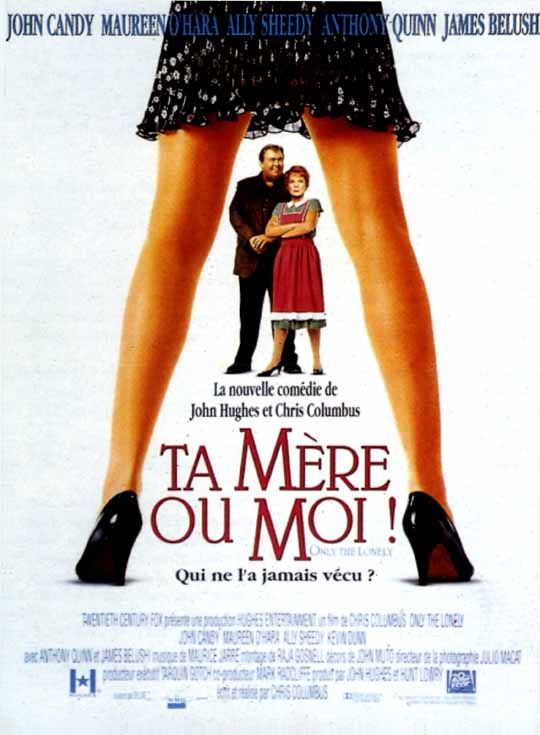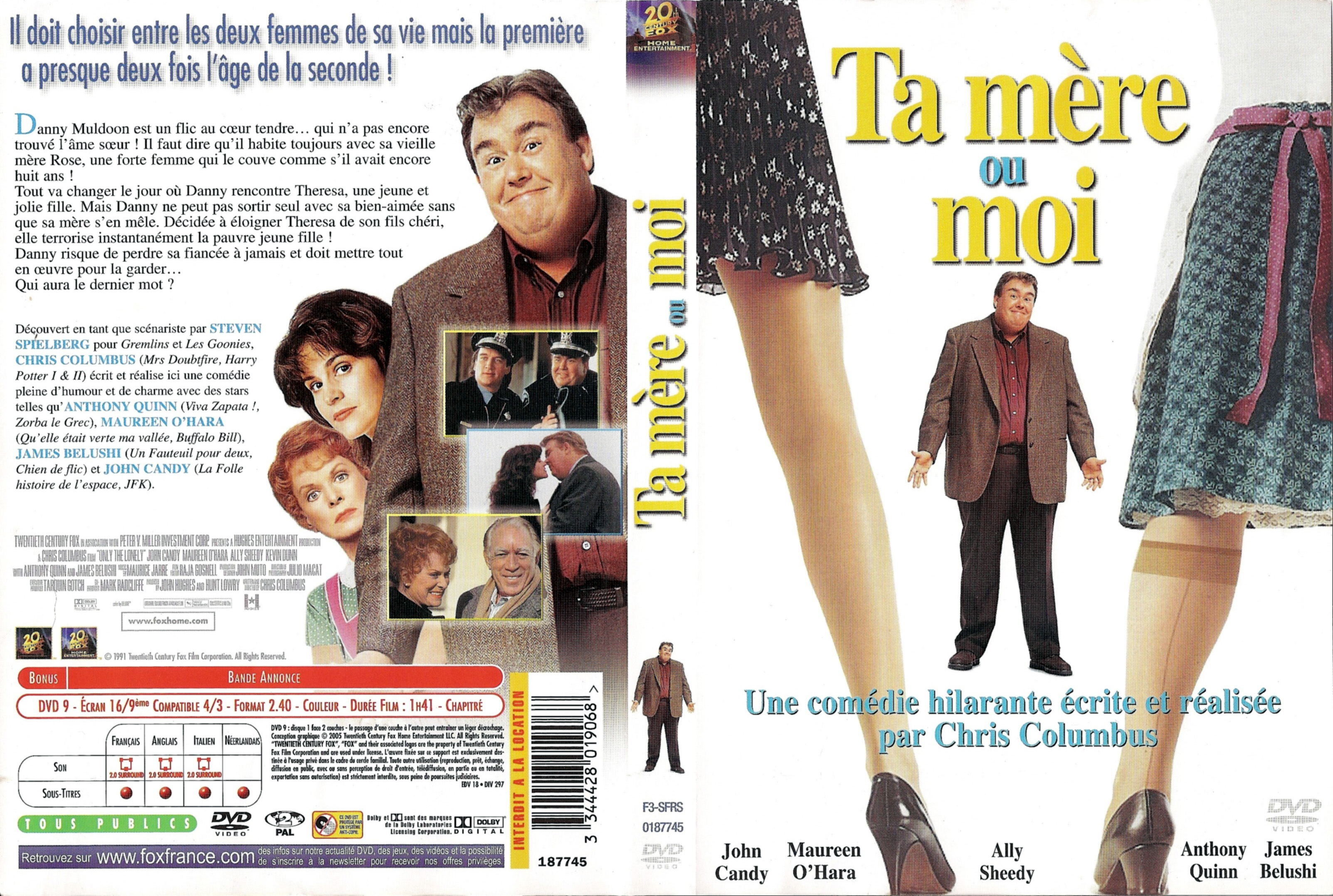Mothers Vs. "Moi Ou Ta Mere": The Ultimate Guide To Understanding French Slang
French slang has a way of making even the simplest phrases seem like a mystery waiting to be solved. And when it comes to the phrase "moi ou ta mère," things get even more interesting. This seemingly casual expression carries layers of meaning that go beyond just words. If you’ve ever stumbled upon this phrase and wondered what it really means, you’re in the right place. In this article, we’re diving deep into its origins, usage, and cultural significance.
Let’s be honest, French is one of those languages that sounds so smooth, yet can throw some unexpected curveballs your way. "Moi ou ta mère" is one of those curveballs. While it might seem like a harmless phrase at first glance, there’s a lot more to it than meets the eye. Whether you’re a language enthusiast, a traveler, or just someone curious about French culture, this article will give you the inside scoop on what makes this phrase so intriguing.
And hey, if you’re thinking this is just another boring language lesson, think again. We’re keeping things real, conversational, and packed with insights that’ll make you sound like a local in no time. So grab a coffee—or maybe a glass of wine—and let’s break it down together.
- Coca Vin Rouge The Ultimate Guide To This Trendy Beverage
- Unveiling The Magic Your Ultimate Guide To Animated Cartoons In 2000
What Does "Moi ou Ta Mere" Really Mean?
Now, let’s cut to the chase. The literal translation of "moi ou ta mère" is "me or your mom." But hold up, because language isn’t always about literal meanings. In French slang, this phrase is often used as a playful way to challenge someone or express confidence. It’s like saying, "It’s either me you’re dealing with, or you can go ahead and deal with my mom." Pretty bold, right?
This phrase has become a staple in casual French conversations, especially among younger generations. It’s the kind of thing you’d hear in a lively debate or even a friendly argument. Think of it as a way to say, "I’m not messing around here," but with a touch of humor.
Origins of the Phrase
Every great phrase has a story, and "moi ou ta mère" is no exception. This expression gained popularity in French urban culture, particularly in the early 2000s. It started as a way to assert dominance or confidence in social situations. Over time, it evolved into a playful quip that people use without necessarily meaning it literally.
- Disparition Tuana The Mysterious Tale That Has Everyone Talking
- Why The Asics Gelnyc Rose Is Every Runners Dream Shoe
Interestingly, the phrase also reflects the importance of family in French culture. By bringing "maman" into the mix, it adds a layer of respect and seriousness. It’s almost like saying, "If you don’t take me seriously, you’ll have to deal with someone even more formidable—my mom."
Is It Rude or Just Playful?
Here’s where things get tricky. The tone of "moi ou ta mère" can vary depending on the context. In most cases, it’s playful and lighthearted, but it can come off as rude if used in the wrong setting. It’s all about reading the room and understanding the dynamics of the conversation.
For instance, if you’re hanging out with friends and someone makes a joke at your expense, responding with "moi ou ta mère" can defuse the tension and turn it into a laugh. But if you’re in a formal setting, like a job interview or a business meeting, it’s probably best to keep things polite and professional.
Context Matters
Let’s break it down further:
- Among Friends: Perfectly fine. It’s a fun way to engage in playful banter.
- In Public: Use with caution. Some people might find it offensive, especially older generations.
- In Formal Settings: Avoid it altogether. Stick to polite language instead.
How to Use "Moi ou Ta Mere" Like a Pro
So, you’ve decided to incorporate "moi ou ta mère" into your vocabulary. Great move! But before you start throwing it around, here are a few tips to help you use it like a native speaker:
- Know Your Audience: Make sure the people you’re talking to are familiar with the phrase and won’t take it the wrong way.
- Use It Sparingly: Overusing any phrase can make it lose its impact. Save it for those moments when you really want to make a point.
- Add Your Own Flair: Language is all about personal expression. Feel free to tweak the phrase to fit your style. For example, you could say, "C’est moi ou ta mère qui décide ici!"
Common Variations
Like any good slang, "moi ou ta mère" has its own set of variations. Here are a few you might encounter:
- Moi ou ta grand-mère: A more intense version that brings grandma into the mix.
- Moi ou mon père: A gender-neutral twist that emphasizes family support.
- Moi ou personne: A simpler way to express confidence without involving family.
Cultural Significance
Language is a reflection of culture, and "moi ou ta mère" is a prime example of that. In French society, family plays a central role in shaping identity and values. This phrase taps into that cultural context by highlighting the strength and influence of mothers and other family members.
It also speaks to the French love of wordplay and clever expressions. French speakers have a knack for turning everyday language into something witty and memorable. "Moi ou ta mère" is a testament to that creativity.
The Role of Mothers in French Culture
Mothers hold a special place in French culture. They’re often seen as the backbone of the family, offering guidance, support, and wisdom. When someone says "moi ou ta mère," they’re essentially saying, "I’ve got this, but if you don’t believe me, just wait until you meet my mom."
This respect for mothers is deeply ingrained in French society. It’s not uncommon to hear people talk about their moms with admiration and affection. So the next time you hear "moi ou ta mère," remember that it’s not just a phrase—it’s a nod to the power of family.
Where You Might Hear It
French slang is everywhere, and "moi ou ta mère" is no exception. Here are a few places where you might come across this phrase:
- Social Media: TikTok, Instagram, and Twitter are full of videos and posts using this phrase. It’s become a viral sensation in French-speaking communities.
- Movies and TV Shows: French films and series often feature characters using this expression in casual conversations.
- Music: French rap and hip-hop artists love incorporating slang into their lyrics, and "moi ou ta mère" is a favorite.
Examples in Popular Culture
Here are a couple of examples from popular culture:
- Booba: The legendary French rapper has used variations of "moi ou ta mère" in his songs to assert his dominance in the music scene.
- Les Kaïra: This French comedy group often uses the phrase in their sketches to add humor and relatability.
Tips for Learning French Slang
If "moi ou ta mère" has sparked your interest in French slang, you’re in for a treat. Here are some tips to help you master the art of casual French:
- Listen Actively: Pay attention to how native speakers use slang in conversations, movies, and music.
- Practice Regularly: The more you use slang in real-life situations, the more natural it will feel.
- Stay Updated: Language evolves, so keep an eye on new trends and expressions.
Common Mistakes to Avoid
Learning slang can be tricky, so here are a few mistakes to watch out for:
- Overusing Slang: Too much slang can make you sound unnatural. Balance it with standard language.
- Mispronouncing Words: Pay attention to pronunciation to avoid misunderstandings.
- Using Outdated Expressions: Slang has a shelf life. Stick to what’s current and relevant.
Conclusion
In conclusion, "moi ou ta mère" is more than just a phrase—it’s a cultural phenomenon that reflects the humor, creativity, and values of French society. Whether you’re using it to express confidence, engage in playful banter, or simply sound like a local, this expression is a powerful tool in your language arsenal.
So go ahead, give it a try. And remember, the key to mastering French slang is practice, practice, practice. Leave a comment below and let us know how you’ve used "moi ou ta mère" in your conversations. Who knows, you might just inspire someone else to join the fun!
Table of Contents
- What Does "Moi ou Ta Mere" Really Mean?
- Origins of the Phrase
- Is It Rude or Just Playful?
- How to Use "Moi ou Ta Mere" Like a Pro
- Common Variations
- Cultural Significance
- Where You Might Hear It
- Tips for Learning French Slang
- Common Mistakes to Avoid
- Conclusion



Detail Author:
- Name : Prof. Gerry Schumm
- Username : newton77
- Email : bahringer.tyrell@hotmail.com
- Birthdate : 1984-04-14
- Address : 289 Daugherty Ferry Suite 135 Thompsonview, TX 69109-4139
- Phone : 408.222.0403
- Company : Mayer-Lemke
- Job : Manager of Food Preparation
- Bio : Ut quis deserunt dicta architecto dolorem. Id eum quo ea inventore explicabo. Provident hic autem cum illum voluptatem sit. Rem veritatis consequatur corporis quo.
Socials
instagram:
- url : https://instagram.com/michale3096
- username : michale3096
- bio : Deleniti ut architecto voluptate. Molestias ex quam laboriosam consectetur unde voluptas dolor.
- followers : 4178
- following : 1234
tiktok:
- url : https://tiktok.com/@michalehaley
- username : michalehaley
- bio : Quasi adipisci autem pariatur.
- followers : 1508
- following : 432
twitter:
- url : https://twitter.com/michale_haley
- username : michale_haley
- bio : Ut nisi eos eligendi. Consequatur eum nemo minima eum fugit. Non vel sint ut non. Sed praesentium est eos.
- followers : 6425
- following : 2132
facebook:
- url : https://facebook.com/mhaley
- username : mhaley
- bio : Corporis ut dignissimos fugit eaque itaque exercitationem est.
- followers : 4589
- following : 2699